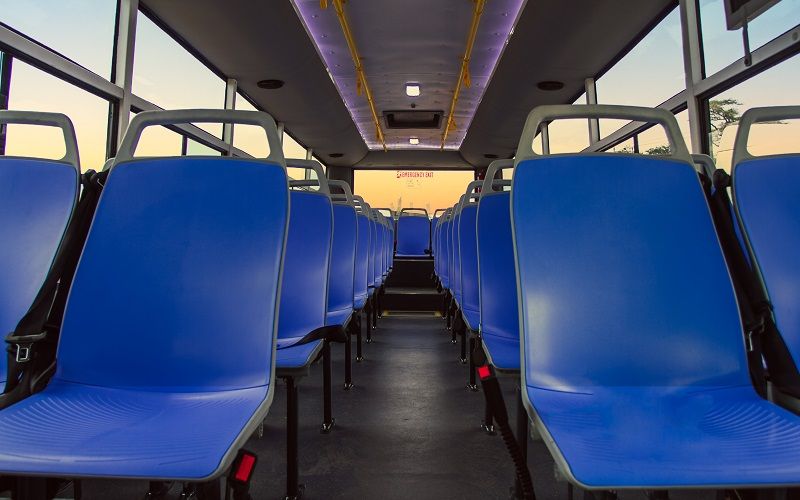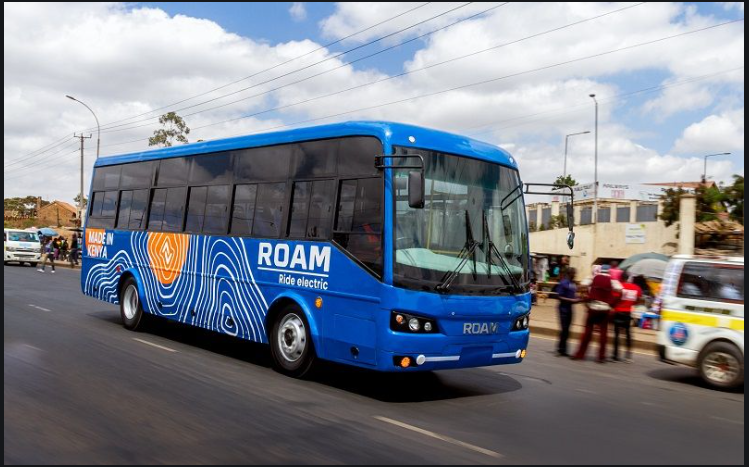Swedish-Kenyan EV startup, Roam (formerly Opibus) has launched The Roam Move, Kenya’s first locally manufactured electric bus. “The launch of this electric shuttle bus represents not only a significant step forward in our commitment to sustainability but also a testament to the talent and potential within Kenya’s manufacturing industry,” says Dennis Wakaba, Roam’s country sales executive.
The Roam Move differs from Roam’s other electric bus offering, the Roam Rapid, which is a mass transit electric bus designed for Africa’s Bus Rapid Transit system.
The EV startup describes the all-electric bus as a “zero-emissions shuttle bus fashioned for high performance through unmatched design, with each detail developed to provide an exceptional passenger experience”.
The Roam Move will begin its official operations in late October
Equipped with a 170 kWh battery pack, the electric shuttle bus can travel 200 km on a single charge, according to a statement seen by Bendada.com. This extended range ensures uninterrupted service throughout the day, catering to the demands of urban commuters. The Roam Move builds on electric mobility’s legacy of being reliable by using fast plug-in battery charging that ensures the bus is fully charged in less than two hours.
Additionally, the Roam Move boasts operating costs that are 50% lower, attributed to its exemption from expensive maintenance and its streamlined construction with fewer moving parts, thereby minimising downtimes. These combined factors lead to substantial savings, amounting to as much as KES 35 per kilometre journeyed.
Designed with the needs of Kenyan commuters in mind, The Roam Move boasts an impressive array of features. The electric bus possesses a spacious interior with a capacity to accommodate 51 passengers, ergonomic seating, spacious aisles, and a whisper-quiet ride that enhances the passenger experience while reducing noise pollution in densely populated areas. The bus also has cutting-edge safety features, including collision avoidance systems, advanced driver assistance, and robust structural integrity.

This electric shuttle bus represents a fusion of innovation, technology, and environmental consciousness. Assembled entirely in Kenya, the bus exemplifies Roam’s commitment to supporting local manufacturing while advancing the nation’s sustainability goals. This vehicle is poised to revolutionize public transportation by providing a zero-emission solution that addresses air quality challenges, reduces reliance on imported fossil fuels, and promotes domestic renewable energy utilisation.
Petroleum is Kenya’s major source of commercial energy and has, over the years, accounted for about 80% of the country’s commercial energy requirements — this reflects the large dependence on fossil fuel for mobility: It is estimated that there are about 20,000 fossil-fuel vehicles ferrying commuters across Nairobi, making the public transport service sector one of the main contributors of air pollution in the city.
However, The Kenyan Wall Street reported that the Kenyan government plans on having at least 5% of all registered vehicles in the market be electric by the year 2025 to mitigate climate change as part of the Paris Agreement.
In April, the European Union approved a $378 million financing for Kenya to boost the country’s Bus Rapid Transport System which will be run by EVs. Last year, BasiGo, a Kenyan cleantech startup raised a $4.3 million seed to kick off an Electric Vehicles (EV) assembly plant in Nairobi and to launch the sales and delivery of its electric buses.
According to Kenya’s president William Ruto, “The adoption of electric mobility is a high-priority intervention to address the challenges of pollution, adverse health effects, and fuel costs which raise the cost of living.” Ruto launched Kenya’s national e-mobility programme earlier this month.






